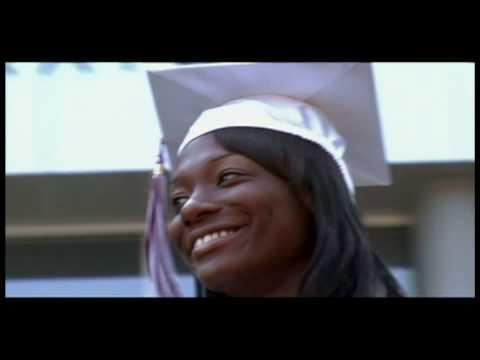A new film, Bronx Princess, provides audiences with a fascinating and beautiful portrait of what it’s like to grapple with personal growth – to be at one moment headstrong and in the next, humbled. It follows Ghanian-American Rocky Otoo on her journey from home to university to meeting her estranged father in Ghana after two years. And it doesn’t beat you over the head with a Muslim angle or with bizarre tribal customs.
It’s a hard lesson for many of us to learn: how to be confident, strong and bold while maintaining a healthy balance of humble demure with friends, family and elders. It’s usually a lesson that involves us trying to prove our maturity, leadership and independence, cheered on by a culture that glorifies youthful exuberance, and then getting cut down to size on life’s many chopping blocks.
The new film Bronx Princess captures this struggle well. The coming-of-age story premiered on PBS last week and can be seen streaming live here until October 22nd.
Bronx Princess’ producers, Musa Syeed and Yoni Brook, provide audiences with a fascinating and beautiful portrait of what it’s like to grapple with personal growth: to be at one moment headstrong and in the next, humbled.
The story focuses on Rocky Otoo and her family as she finishes high school in the Bronx and begins college in Carlisle, Pa. It follows her transition from life at home to independence at Dickinson College. Between the Bronx and rural Pennsylvania, she makes a stop in Ghana to see her father, a newly minted tribal chief, whom she hasn’t seen for two years.
This means Rocky, who we find in the film is quite imperious, is not just a princess unto herself, but actual royalty in her family’s native country, Ghana. And while Ghana isn’t New York, universal themes abound and the film easily follows fascinating threads be they in her family’s Bronx apartment or her father’s Ghanaian palace.
Yes, Rocky and her family are Muslim. But you won’t be repeatedly reminded of this in the film because, frankly, there isn’t much overt discussion of it. This is because, and I am happy to announce, films can include Muslims or be about them and still revolve around universal themes. Indeed, films with Muslims do not require a story arc that traverses bizarre tribal customs coupled with irrational political rage to be real and reflective.
And another thing: Muslim women aren’t living cowered over there in the corner. The irony of Rocky’s name is all too real. While she is now more philosophical and quietly contemplative about life, in the film, she doesn’t shy from picking fights. And everyone was fair game. We learn this last part rather quickly.
The film begins with a quarrel between Rocky and her mother about things that many of know us know all too well – wanting to be with friends, but parents reminding us family responsibilities come first. Feeling like we know what’s best, but our parents reminding us that we really don’t, but would like to.
The beginning also provides an overview of Rocky, which helps us understand her frustration and the frustration of those around her. She is smart, popular and with it. She’s a member of Model U.N., a star forward on the basketball team, an outspoken student at her prep school. She even regulates lunch tables letting those who are unwelcome know where they stand. Yeah, she’s pretty mean sometimes.
It also becomes apparent that there is tension between Rocky and her mother because of a perceived achievement gap – Rocky is the first woman in her family to go to college and her mother worries that she’ll be book smart, but lack the necessary “sense” to survive in the world.
And then there’s Ghana, where much of the film takes place. Rocky visits her father in Ghana and is excited to see him because of the frustration she feels with her mother. She thinks her father will absolve her of her mother’s critiques because he “gets” her unlike her mother.
But she discovers that her father does get her, but what he gets, she doesn’t like. He sees her immaturity, her meanness, self-centeredness. And much to her chagrin, he lets her know, like her mother does, that she needs to change.
But what the film does well is show not only how she needs to change, but the actual change that occurs from lessons learned and the thoughtful revolution that occurs on her part even while she pushes back against friends and family.
This part is illustrated well at the end of the film. Lessons of leadership — personal sacrifice, putting those you speak for before yourself — are seen in Rocky as she confidently lets her classmates and professor at Dickinson College know that leadership isn’t about you and leading from the front, but actually being in the background and the one who reflects the needs of those who follow.
And Rocky really believes this. She is now a student leader that is imbued with the wisdom of her parents and the lessons she has learned over the past few years as she has transitioned from NYC to rural Pennsylvania. She is self-reliant rather than self-obsessed and fully aware of how growth doesn’t end one day and sagacity begin the next, but go hand-in-hand.
Jordan Robinson is Media Associate for the One Nation Foundation.




